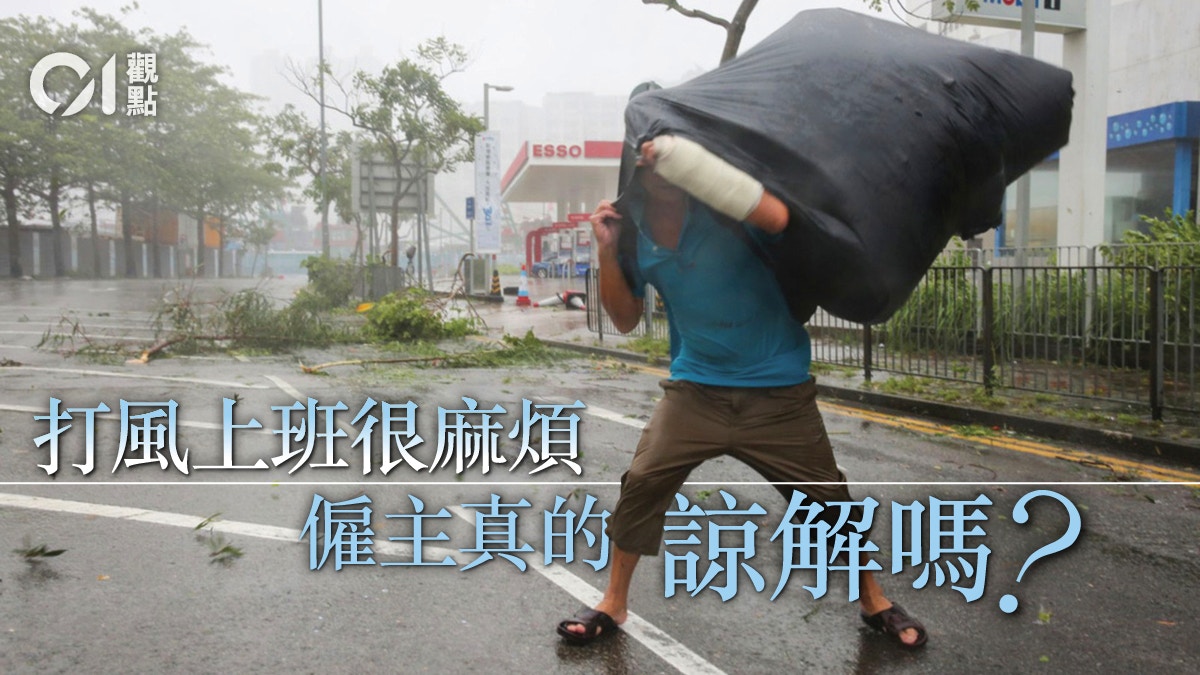01 view
Written by: Commentary Editing Room
2021-03-14 07:00
Last update date: 2021-03-14 07:00
In September 2018, the super typhoon "Mangkhut" struck Hong Kong. The road traffic conditions were chaotic that day. However, after the typhoon signal No. 8 was removed, citizens were still forced to cross the fallen tree to go to work, which was dangerous.
The Legislative Council held a meeting on Friday (12th) to consider the "Employees Compensation (Amendment) Bill 2021". It intends to extend the coverage of the Employees' Compensation Ordinance (hereinafter referred to as the "Ordinance") to include employees in "extreme situations". An accident on the way from get off work.
It is common sense that citizens do not need to go to work under dangerous conditions, or if they encounter danger on the way to work, they should be covered by work injury protection. However, for Hong Kong workers, such simple protection is not easy to come by.
In 2018, the super-powerful mangosteen struck Hong Kong, and the Shing Mun River "flooded" onto the pedestrian road.
(Information Picture/Photographed by Lu Yiming)
Citizens have to go to work after waiting for three years
The government changed its future response to super typhoon mechanism after "Mangosteen". One of the new measures is that the Chief Secretary for Administration will change the No. 8 typhoon warning to the Observatory after considering the opinions of the Super Typhoon Steering Committee. Before the No. 3 typhoon warning, the "extreme situation" applicable to the whole territory was announced, and the relevant ordinance amendments are to allow employees to still have a certain period of time to be protected by the "Ordinance" after the "fall".
Although during the "extreme situation" period, citizens should stay in their original place or a safe place two hours after the typhoon warning No. 8 is cancelled, but the Ordinance itself does not cure the problem of citizens still having to rush to work after the wind breaks.
After severe weather, road conditions vary from place to place. According to the "Code of Practice under Typhoons and Rainstorm Warnings" established by the Labour Department, the guidelines only require employers to consult employees on work arrangements under "extreme conditions."
Employees cannot decide whether to go to work or not based on their own circumstances, and this amendment to the Ordinance does not allow citizens to decide whether to go to work or not. However, if citizens cannot go to work, they can only hope that their employers will understand.
In 2018, super strong mangosteen struck Hong Kong and the Tseung Kwan O Waterfront Park was severely damaged.
(Information Picture/Photographed by Lu Yiming)
Employers leave the ground and don’t understand, see in the Legislative Council
The amendments to "extreme situations" in the "Regulations" have been unanimously agreed at the LAB earlier.
Although there are many issues to be taken into consideration in this amendment, at least on the issue of work injury protection after severe weather, the amendment was not controversial at first, but the wonderful weather in the Legislative Council during the deliberation period is quite worthy of social reflection.
The labor relations in Hong Kong are already extremely unequal, but the labor and welfare policy in Hong Kong still expects employees and employers to "understand each other". This is one of the reasons why labor protection in Hong Kong has been criticized. However, the amendment to the Ordinance has been highly regarded by Members. Worrying that no one will go to work, insurance will become expensive, and whether the employer will be responsible for the employee's injury, etc., reflects that even representatives may have joined the ranks of despising the situation of employees.
Although the background information prepared by the Legislative Council Secretariat for the amendment has stated that “the authorities expect that the increase in the premiums for employees’ compensation insurance should not be much”, the functional constituency (first) member of the business sector, Lin Jianfeng, expressed concern about expanding the “Regulations”. 》The coverage will make insurance premiums more expensive, and even if there is no scientific evidence, the extreme weather that happened once in a few hundred years may now be once in several years.
In addition, the functional constituency industrial (second) member Ng Wing-kah asked whether an employee’s accident of "suffering by himself" was counted as a work injury. For example, it refers to an employee "driving to work on his own on a super wet road" or "driving to work on his own." But whether the situation such as driving to 180 kilometers per hour is included in the regulations, whether the employer must pay compensation to the employees regardless of fault.
It is in the process of this amendment to the Ordinance that we can see that employers want to take the least responsibility to their employees, but the Government evasively hope that employers and employees can communicate on their own. The end result can only be that employees suffer.
If the government still does not take the initiative to assume more responsibilities to legislate to protect the well-being of employees, how can employers be considerate?
Typhoon Work Injury 01 Viewpoint

